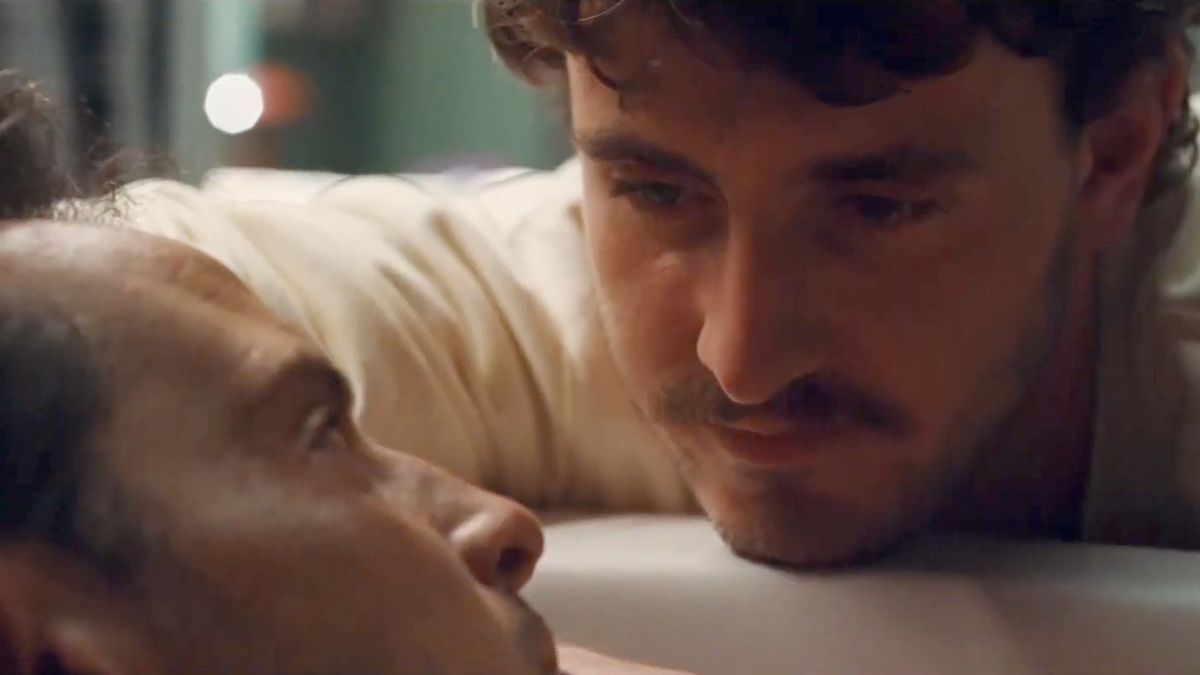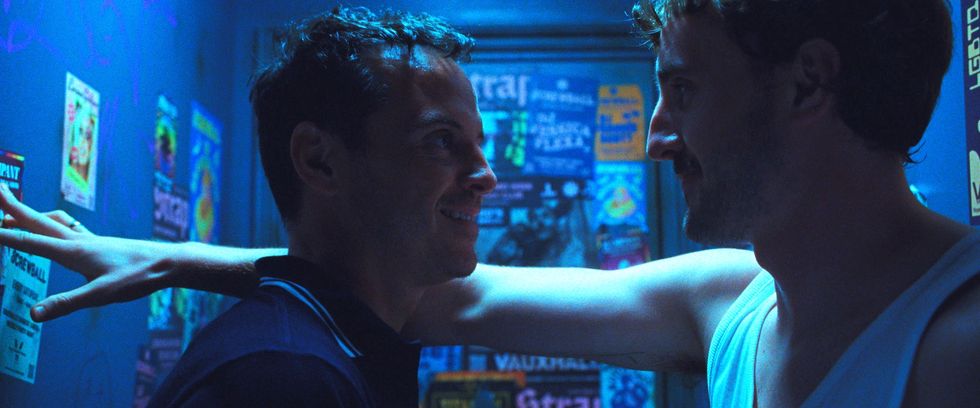Is it possible to look forward to something that you know is going to emotionally destroy you? That’s the un-namable feeling that was stirred in many upon watching the trailer for Andrew Haigh’s All Of Us Strangers; which features Andrew Scott and Paul Mescal in a haunted love story.
As it turns out, watching the full film is an even more white-knuckle assault on the soul, and long after stepping out from the cinema, All Of Us Strangers will haunt you like the spectres that appear in the story. But once you’ve picked through all the emotional rubble, what happened in the ending, and what does it all mean? Spoilers, obviously, ahead…
Adapted from the 1987 Japanese novel, Strangers, by Taichi Yamada, Scott plays Adam, a gay scriptwriter who lives – almost – alone in a Ballardian high-rise building in London. As he struggles to write a story, based on his family, he revisits his family home in the suburbs near Croydon (actually Haigh’s own childhood home), only to find his deceased parents (played by Jamie Bell and Claire Foy) – who died when he was 12 in a car crash – still living there, stuck in the ‘80s era in which he last saw them. They invite him in to catch up on the years past between them.
Running concurrent to these apparitions, he then meets Harry (Mescal), a man who lives in the same apartment block, and who, once Adam lets in, both literally and emotionally, they go on to have a passionate yet nurturing relationship. Both men address their sexuality: Adam lets his guard down, and Harry appears to be an antidote to his insecurity about his queerness, the loss of his parents and his loneliness.
Ending explained
After the clubbing scene – one of the most realistic on-screen depictions of a hedonistic night out in recent memory – Adam’s reverie in having his parents “back” and being secure in a loving relationship with Harry all starts to unravel.
He’s told by Harry that, while high on ketamine in the club, he had a meltdown, screaming out for his mum and dad, and that Harry had to take him home. Adam then decides to let Harry in on his visits, taking him home to see his parents. Though Harry appears to catch a glimpse of them, he tells Adam that it’s all in his mind.
The crux of the film comes when Adam’s parents tell him that he can no longer visit him, that he has to let go and get on with his own life, stressing in particular that he needs to take care of Harry, who his mum points out, has a sadness in his face.
Adam returns to his flat in London, but for the first time, heads to Harry’s apartment on the sixth floor. When he enters, he’s greeted by a stench, and he goes in to find Harry, dead, in his bedroom, clutching the same bottle of Japanese whiskey that he was drinking the first night he came to Adam’s door, and was rejected by him.
And here’s the plot twist: Harry died that night, and the entire relationship between him and Adam was all a figment of Adam’s imagination. Adam has been Sixth Sensing throughout the whole film, either as a mental breakdown, disassociating, or a coping mechanism for the deep-seated trauma he still feels from the loss of his parents as a child. The almost maternal way Harry cared for Adam when he had a fever, for example, was wish fulfilment on Adam’s part: he wants a partner to care for him how his mother did, and he projected this role onto a fantasy version of Harry.
But it doesn’t end there, as Harry reappears, in the same pink jumper he wore when he first visited Adam, and confirms that he’s dead (“I was so lonely that night”, he explains mournfully). The pair head back to Adam’s apartment. If this is the reality, Adam appears to reason, he wants to continue the delusion and live in his fantasy world. He has had to say goodbye to his parents – again – but he’s not letting go of the ghost of Harry, who never truly existed in the real-world relationship with Adam, and who seems to represent Adam’s inability to move on in life, and let people in.
The past is where Adam wants to stay – or is he stuck in purgatory, as he’s also dead, as perhaps he has been right from the start? – and as he cosies up to Harry on his bed, the ending gets cosmic. As the pair form a heart formation, cuddled up to each other, a light begins to shine between them, which gets brighter as they recede into the blackness, and other stars begin to shine beside them. As Frankie Goes To Hollywood blares out, it’s “The Power Of Love” indeed, a force from above.
What does the director say about it?
Andrew Haigh spoke with the journalist Evan Ross Katz about the ambiguous ending in his newsletter, Shut Up Evan: “I kind of go back and forth with all of that. I certainly knew that I wanted this film to feel like when you wake up from a dream and you think you understood it but you’re not sure if you did, and you find that the more that you pick at the dream, the more it raises new questions.
“And on the logical front, your sense of the film is correct, but everyone has different interpretations. People have come to me and said, ‘Is Adam dead all along?’ and ‘Is this purgatory’ and ‘Is any of it real?’ I mean, it's a film, so none of it's actually real, but it’s all the manifestation of a feeling, so if people see different things in that, they should. And I'm aware that some people will want a much happier ending and I'm aware of the things that people instinctively want — including myself.”














